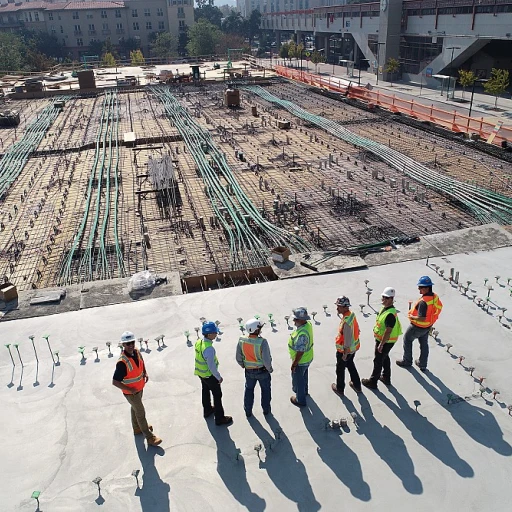
Understanding AI in Resume Screening
Exploring the Role of AI in Transforming Resume Screening
Artificial Intelligence (AI) has undeniably become a game-changer in many facets of our everyday lives, and the hiring process is no exception. As companies strive to optimize their recruitment strategies and sift through the myriad job applications, AI resume screening has emerged as a pivotal tool. Unlike traditional methods, where human recruiters manually examine each resume and cover letter, AI screening systems can quickly analyze vast amounts of data, allowing for an efficient and faster hiring process. AI-driven tools utilize machine learning and advanced algorithms to extract and evaluate key information from job seekers' resumes. These systems are designed to spot and match relevant keywords, job titles, skills, and career paths with the requirements outlined in job descriptions. The objective is to highlight candidates who are potentially well-suited for a given job—streamlining the initial candidate filtering stage, which could take days when managed by human recruiters. The introduction of AI in resume screening doesn't just offer speed. It promises a more standardized and unbiased evaluation, as it minimizes the subjective elements that inevitably come into play when humans assess job applications. The technology's predictive capabilities in identifying suitable candidates based on past hiring data further underline its transformative potential. However, as with all technological advancements, there are both pros and cons to consider. While its effectiveness and efficiency are evident, the question remains: should companies and candidates opt to embrace this digital transformation fully, or is there merit in sometimes opting out? For a deeper understanding of the organizational impacts of technologies like AI, a look at the role of an organizational manager in modern HR systems may offer valuable insights.Pros of AI Resume Screening
Benefits of Implementing AI in Resume Sorting
The rise of artificial intelligence in the job market has brought about significant transformations in the process of resume screening. Companies use AI-driven systems to streamline the initial stages of candidate selection effectively. Here are some key advantages:- Efficiency: One of the most compelling arguments for using AI in resume screening is efficiency. Gone are the days when human recruiters had to spend countless hours sifting through stacks of resumes. AI systems can process large volumes of data quickly, leading to a more streamlined hiring process.
- Consistency: Human biases, whether conscious or unconscious, can often creep into the resume screening process. AI ensures a consistent application of criteria, as it evaluates candidates against the same set of standards each time. This helps maintain a level playing field for all applicants.
- Keyword Optimization: These systems are adept at identifying specific skills and keywords within a resume that align with the job description. It helps in ensuring that suitable candidates are selected based on their resume's content rather than irrelevant factors.
- Data-Driven Insights: AI technologies can provide valuable insights into the qualifications of job seekers. By analyzing patterns and trends within resumes, companies can gain deeper understanding of the qualities associated with successful candidates.
- Focus on Soft Skills: While many believe AI is only about hard data, modern machine learning models are increasingly capable of assessing evidence of soft skills through sophisticated algorithms. This enables HR to identify well-rounded candidates.
Cons of AI Resume Screening
While the benefits of AI resume screening are noteworthy, it's crucial to also consider the drawbacks that accompany this technology in the hiring process. AI systems, though designed to streamline candidate selection, are not without their limitations.
Challenges of Automated Screening
One major concern with AI in resume screening is the reliance on data-driven criteria that may inadvertently penalize candidates. Often, AI systems are programmed to identify specific keywords or qualifications, aligning closely with job descriptions. However, this approach can overlook soft skills or potential in candidates who do not perfectly match predefined criteria. In an ever-evolving job market, where unconventional career paths are becoming more common, excluding such talent might be a missed opportunity.
Bias and Fairness Concerns
Another issue is the inherent bias that can exist in AI systems. Although these systems are meant to be impartial, the data fed into them might inadvertently introduce bias. If historical hiring data used for machine learning contains unintentional biases, the AI may continue to propagate them. This can affect diverse or non-traditional job candidates disproportionately, raising concerns about fairness in the hiring process.
The Human Element
While AI can efficiently sift through countless resumes, it lacks the nuanced judgment human recruiters provide. There's an opt resume screening technique that values human intuition and empathy, essential in understanding a candidate's potential beyond what's written. Many argue that while AI can handle data analysis, the ultimate hiring decision should still involve human input to ensure a comprehensive evaluation.
Given these considerations, the choice to opt out of AI resume screening can be significant. Companies must weigh these pros and cons carefully and assess whether the potential drawbacks affect their ability to find the right candidate fit.
The Opt-Out Option: What It Means
Exploring the Opt-Out Option in AI Resume Screening
In the evolving landscape of the job market, the option to opt-out of AI resume screening has emerged as a topic of discussion. This choice allows candidates to bypass the automated systems that many companies use to streamline their hiring process. But what does opting out actually entail, and what implications does it have for job seekers?
When candidates choose to opt-out, they are essentially requesting that their resumes be reviewed by human recruiters instead of being filtered by an Applicant Tracking System (ATS). This decision can be appealing to those who believe their skills and experiences might not be accurately captured by machine learning algorithms. Human recruiters can appreciate nuances in resumes, such as career paths that aren't linear or soft skills that might not be highlighted through keywords alone.
However, opting out is not without its challenges. In today's fast-paced hiring environment, many companies rely heavily on AI to quickly sift through large volumes of resumes. By choosing the opt-out route, candidates may face longer wait times as human recruiters manually review their applications. Additionally, opting out might not be available for all job descriptions, as some companies have fully integrated AI into their screening process.
Ultimately, the decision to opt-out should be made after careful consideration of the pros and cons of AI resume screening. Candidates should weigh their own unique skills and experiences against the potential advantages of having a human review their application. Understanding the impact of this choice on the overall hiring process is crucial for making an informed decision.
Impact on Job Seekers
How Job Seekers Are Impacted by AI in Resume Screening
The evolving landscape of AI-driven resume screening is reshaping the job market in numerous ways, and its implications for job seekers are significant. Here's a closer look at how opting out of AI-based screening systems can influence your job search. To begin with, candidates should be aware that AI systems now play a considerable role in the hiring process. Companies use these systems to efficiently manage large volumes of applications, honing in on resumes that fit specific job descriptions. This means that if your skills and keywords aren’t adequately aligned with the job title or description, your resume might not make it past the initial screening stage. For job seekers opting out of AI resume screening, the reliance shifts to traditional human recruiters to evaluate their resumes. This may seem beneficial for those who believe their strengths lie in soft skills or unique career paths. However, it can also mean longer waiting times, as processing resumes manually can be more time-consuming. Moreover, opting out doesn’t guarantee that your application will be seen by a human. Some companies may fully rely on AI systems, meaning nonparticipation could result in resumes being disregarded entirely. It's important to ensure your resume is optimized for both human eyes and systems. Incorporating machine learning-friendly keywords while maintaining a clear and engaging presentation can help increase the chances of your application standing out. Job seekers should also consider customizing their resumes and cover letters for each application to reflect the specific requirements and nuances of the job. In summary, while opting out of AI-driven resume screening could benefit those looking for a more personalized review of their credentials, it could also reduce the visibility of your application. It's a process that each job seeker should weigh carefully, considering both the pros and cons in today's competitive environment.Making an Informed Decision
Considerations for Choosing Between AI and Human Resume Screening
When it comes to making an informed decision about whether to opt for AI-powered resume screening or stick with traditional human recruiters, job seekers should weigh several factors. Both approaches have their advantages and disadvantages. On one hand, AI systems excel in speed and efficiency, processing large volumes of resumes and extracting key data in mere days. They can ensure resumes align with the job description, focusing on specific keywords.
However, this might not capture the full essence of a candidate's skills, particularly soft skills, or the nuances of a well-crafted cover letter. Human recruiters, despite a longer screening process, can discern these subtleties, offering a more personalized evaluation of candidates.
Job seekers need to consider their career paths and the specific roles they are targeting. For those applying to large companies with automated tracking systems (ATS), understanding AI’s role in resume screening could be beneficial. Conversely, if seeking a more personalized job market approach, opting for a process that involves human judgment might be more suitable.
The decision may also depend on the job titles and industries involved. For tech-savvy sectors, AI integration might be predominant, whereas other fields may still prioritize personal interaction in hiring processes. Ultimately, candidates should opt for an approach that best suits their job search strategy, keeping in mind the pros and cons of each method.













